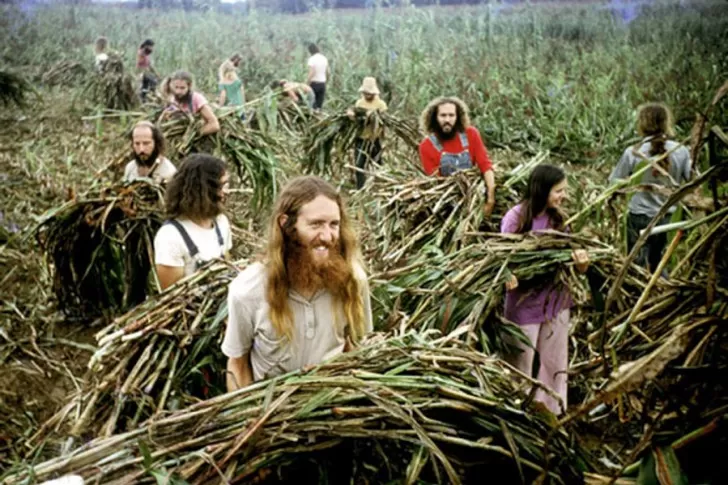One of the most distinctive characteristics of hippy communities was their emphasis on naturalness and self-sufficiency. Shifting the focus from commercial food industry to a more organic and sustainable approach, these communities committed to growing their own food and promoting a predominantly vegetarian diet. This vision was part of a broader movement towards a healthier, more ethical life, more in tune with nature.
These practices certainly had numerous benefits. Organic farming and plant-based eating are notoriously advantageous for both health and the environment. Furthermore, growing their own food allowed communities to avoid artificial ingredients and the harmful production processes often associated with the mainstream food industry.
However, like many other utopias of hippy communities, the realization of this ambitious vision of food self-sufficiency clashed with practical challenges. Supporting a community through self-production of food requires a significant amount of physical work and a high level of organization. This was not always compatible with the relaxed and non-hierarchical pace of hippy communities, which prioritized spontaneity and individual autonomy.
In many cases, this led to imbalances, with some community members carrying out most of the necessary work, while others benefited without contributing fairly. Moreover, without adequate planning and management, communities could face food or resource shortages.
The experience of hippy communities teaches us that although self-sufficiency and sustainability are praiseworthy objectives, realizing these ideals requires a balance between individual freedom and collective responsibility. If the vision of community organic agriculture and a vegetarian diet was shattered, the dream of more sustainable and environmentally respectful agriculture and nutrition continues to be an ideal worth fighting for.












